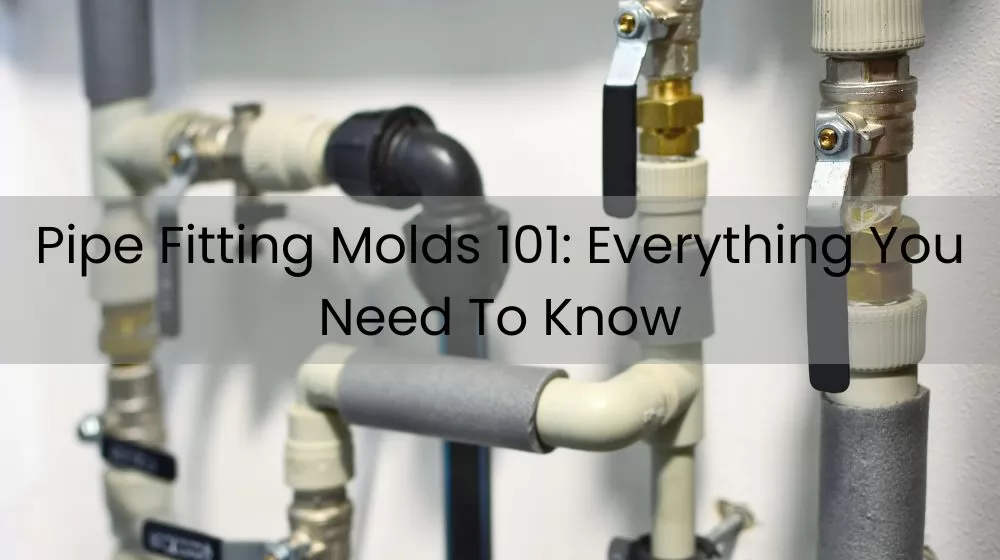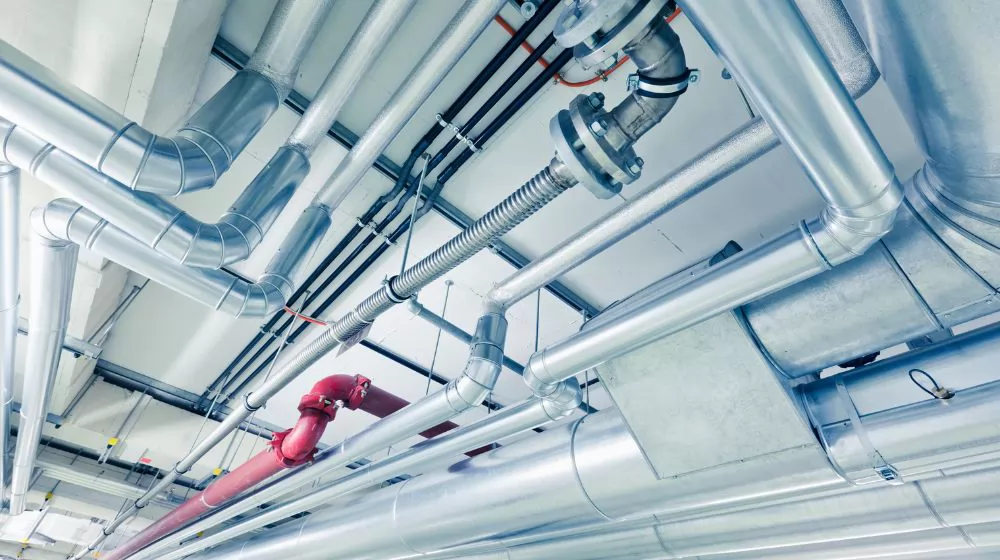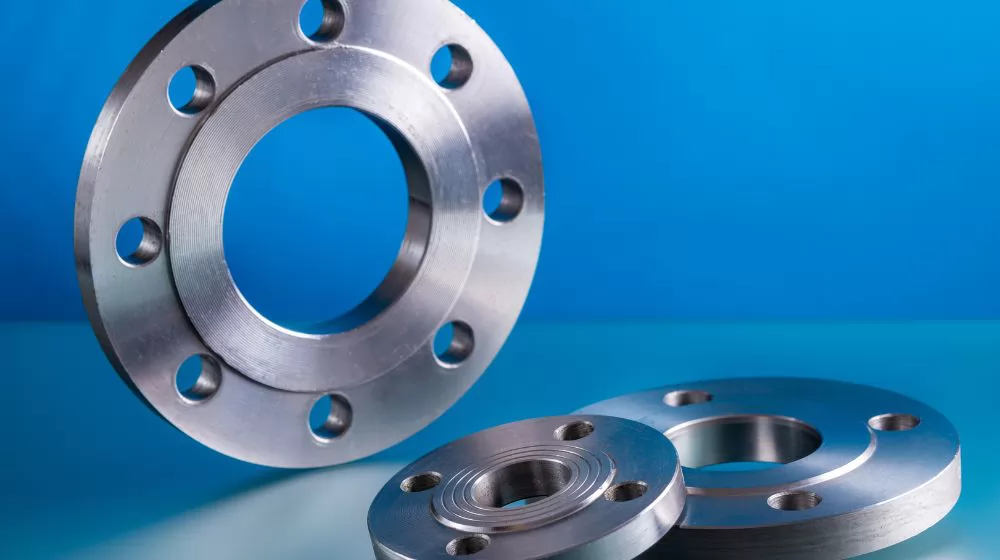
Pipe fitting molds play an important role in modern industrial production. As the core component of the pipeline system, the quality and performance of pipe fittings directly affect the reliability and safety of the pipeline system. The pipe fitting mold is the key tool for manufacturing these pipe fittings. This article will discuss in depth the role, types and manufacturing process of pipe fitting molds, as well as their application in the industrial field. By understanding the importance and development trend of pipe fitting molds, we can better understand its value in pipeline system construction.
Article Directory:
What is a pipe fitting mold?
Pipe fitting mold is a tool used to manufacture pipe fittings. According to the design requirements and specifications of the pipe fittings, through the mold manufacturing process, the raw materials are transformed into pipe fittings with specific shapes and sizes. Pipe fitting molds can be used to manufacture various types of pipe connectors, such as elbows, joints, tees, crosses, etc., to meet the connection needs of different pipeline systems.
How does the pipe fitting mold make pipe fitting parts?

Mold design: First, design the pipe fitting mold according to the design requirements and specifications of the pipe fittings. This includes determining the shape, size and connection method of the pipe fittings, etc. Designers use computer-aided design (CAD) software to create a 3D model of the mold and perform the necessary simulations and analyses.
Mold manufacturering: According to design drawings, manufacture pipe fitting molds. This process usually includes selecting the appropriate metal material, cutting, milling, turning, EDM and other processes to manufacture the various parts of the mold. Then, through assembly and debugging, the various parts of the mold are assembled into a complete mold structure.
Prepare raw materials: According to the material requirements of pipe fittings, prepare appropriate raw materials. This may be metal materials such as steel, aluminum alloy, or plastic materials such as PVC, PP, etc. The raw material is usually available in the form of pellets, flakes or sticks.
Injection molding or extrusion molding: Put the prepared raw materials into the injection molding machine or extrusion machine. Through the action of heat and high pressure, the raw material is injected or extruded in the cavity of the mold. The raw material flows in the mold and fills the mold cavity, and forms the predetermined shape of the pipe fitting part according to the shape and size of the mold.
Cooling and solidification: Injected or extruded pipe parts need to be cooled and solidified to give them a stable shape and strength. This process usually involves the use of cooling water or other cooling media to speed up the cooling and solidification process of the fitting parts.
Mold release and post-processing: After cooling and curing are complete, the pipe fitting part is removed from the mold. This may require the use of a mold release agent or other aids to ensure that the fitting part comes out of the mold. Then, carry out necessary post-processing on the pipe fitting parts, such as trimming edges, deburring, cleaning, etc., to achieve the desired appearance and quality requirements.
What are the types of pipe fitting molds?
There are many types of pipe fitting molds, and some common types include:
Elbow mold: used to manufacture elbow connectors in piping systems, including 90-degree elbows, 45-degree elbows, etc.
Joint mold: used to manufacture joints in piping systems, including straight joints, reducing joints, etc.
Tee mold: used to manufacture tee connectors in the pipeline system, including equal diameter tees, different diameter tees, etc.
Four-way mold: used to manufacture four-way connectors in piping systems, including equal-diameter four-way, different-diameter four-way, etc.
Pipe cap mold: used to manufacture pipe cap connectors in piping systems, used to close pipe ends.
Pipe connection mold: used to manufacture various other types of pipe connections, such as flanges, sleeves, etc.
In addition, depending on the material and manufacturing process of the pipe fittings, there can also be other special types of pipe fitting molds, such as plastic pipe fitting molds, metal pipe fitting molds, rubber pipe fitting molds, etc.
What materials are there for pipe fitting molds?
Pipe fitting molds can be manufactured using a variety of materials, common materials include:
Aluminum alloy mold: Aluminum alloy has good thermal conductivity and processing performance, and is suitable for manufacturing some simple structure and low-pressure pipe fitting molds.
Copper alloy molds: Copper alloys have high thermal conductivity and wear resistance, and are suitable for manufacturing some high-temperature, high-pressure or special-required pipe fitting molds.
Steel molds: Steel has high strength, wear resistance and corrosion resistance, and is suitable for manufacturing various types of pipe fitting molds, including high pressure, high temperature, and large size pipe fitting molds.
Stainless steel mold: stainless steel has corrosion resistance and high temperature oxidation resistance, and is suitable for the manufacture of pipe fitting molds with special requirements, such as acid and alkali resistance and high temperature resistance pipe fitting molds.
Plastic mold: Some specific plastic pipe fitting molds can be made of plastic materials to meet the special requirements of plastic pipe fittings.
Advantages and disadvantages of pipe fitting mold
|
Advantage |
Shortcoming |
|
Efficient production |
High manufacturing cost |
|
High precision |
Long manufacturing cycle |
|
Customizable |
Requires professional design and manufacturing skills |
|
Provides a stable plumbing connection |
Needs maintenance and upkeep |
|
Ensure the safety of the pipeline system |
Higher initial investment |
What is the difference between a pipe fitting mold and a threaded pipe fitting mold?
There are some differences between pipe fitting molds and threaded pipe fitting molds in application and characteristics. The following is a comparison of pipe fitting molds and threaded pipe fitting molds:
Pipe Fitting Mold
Wide range of uses: Pipe fitting molds are used to manufacture various pipe connectors, such as elbows, joints, tees, crosses, etc., and are suitable for installation and assembly of different piping systems.
Various connection methods: the pipe fitting mold can realize different connection methods, such as welding, bonding, socket, etc., which can meet various pipeline connection requirements.
Wide range of applicable materials: pipe fitting molds are suitable for the manufacture of pipe fittings of different materials, such as metal, plastic, composite materials, etc.
Threaded pipe fitting mold
Mainly used for threaded connection: threaded pipe fitting mold is used to manufacture threaded pipe fittings, and the fastening and sealing of the pipe can be realized through the rotating connection of the thread.
Applicable to specific industries: threaded pipe fitting molds are often used in petroleum, natural gas, chemical and other industries, and are suitable for pipeline systems that transport liquid, gas and powder media.
Easy installation: The threaded fittings manufactured by the threaded pipe fitting mold are easy to install without welding or other special tools, and are suitable for some application scenarios that require frequent disassembly.
It should be noted that pipe fitting molds and threaded pipe fitting molds are not completely mutually exclusive, and they have their own applications under different piping systems and connection requirements. When choosing to use a mold, it is necessary to consider the specific pipeline design and connection method to ensure the quality, reliability and applicability of the connection.
What are the uses of pipe fitting molds?
The main purpose of the pipe fitting mold is to manufacture various pipe connectors to realize the installation and assembly of the pipe system. Pipe fitting molds can produce various types of pipe fittings, such as elbows, joints, tees, crosses, reducers, etc., to meet the needs of different pipeline systems.
The uses of pipe fitting molds include but are not limited to the following aspects:
Construction and engineering fields: Pipe fitting molds are widely used in piping systems in construction and engineering projects to connect and arrange water supply, drainage, HVAC, air conditioning and other pipes.
Industry and manufacturing: Pipe fitting molds also play an important role in industry and manufacturing, and are used to manufacture various pipe connections, such as conveying pipes, gas pipes, chemical pipes, etc.
Water treatment and sewage treatment: Pipe fitting molds are used to manufacture pipe connections in water treatment and sewage treatment systems to ensure the normal operation and reliability of the system.
Agriculture and gardening: Pipe fitting molds can be used for pipe connections in agricultural irrigation systems, gardening sprinkler irrigation systems, etc., helping to achieve efficient water resource utilization and plant growth.
Other application fields: Pipe fitting molds also play a role in petrochemical, food processing, medical equipment and other fields to manufacture corresponding pipe connectors.
In conclusion, pipe fitting molds are widely used and cover many different industries and fields. They are the key components to realize the connection, layout and function of the pipeline system, ensuring the safe, stable and efficient operation of the pipeline system.
Why are PVC pipe fitting molds so popular?

Excellent performance: PVC pipe fittings made of PVC pipe fitting molds have excellent performance. PVC material has good corrosion resistance, electrical insulation and heat resistance, and can adapt to the requirements of different environments and media. In addition, PVC pipe fittings also have good sealing performance and pressure resistance, ensuring the reliability and safety of the piping system.
Good plasticity: PVC material has good plasticity and processability, so that the pipe fittings made of PVC pipe fitting mold can meet the needs of different shapes and sizes. Through the mold forming process, various types of pipe fittings such as elbows, joints, tees, and crosses can be produced to meet the layout and connection requirements of various pipeline systems.
Economical and practical: PVC pipe fittings made of PVC pipe fitting molds have the advantage of relatively low cost. Compared with some metal pipe fittings or other material pipe fittings, PVC pipe fittings have lower manufacturing and installation costs. This makes PVC pipe fittings an economical and practical choice, especially for large-scale piping system construction and applications.
Lightweight and easy to install: PVC pipe fittings made of PVC pipe fitting molds are lighter and easier to install than other pipe fittings. PVC pipe fittings have a certain degree of flexibility, are easy to cut and connect, do not require welding and special tools, and can be installed quickly and conveniently, saving construction time and labor costs.
Environmentally friendly and sustainable: PVC material itself has environmental protection characteristics, can be recycled, and has little impact on the environment. At the same time, PVC pipe fittings have a long service life and good corrosion resistance, reducing the frequency of maintenance and replacement, helping to save resources and reduce waste generation.
What is the market trend of pipe fitting mold?
Automated production: With the improvement of industrial automation, the pipe fitting mold manufacturing industry also tends to be automated and intelligent. The application of automated production lines and robotics can improve production efficiency and product quality, and reduce labor costs and labor requirements.
Precision and high performance: The demand for pipe fitting molds is increasingly inclined to produce precision and high-performance pipe fittings. This includes pipe fitting molds with higher pressure resistance, corrosion resistance and wear resistance to meet the stricter requirements for piping systems in various industries.
Application of new materials: With the continuous emergence and application of new materials, the pipe fitting mold manufacturing industry is also actively exploring the application fields of new materials. For example, the use of high-strength, high-temperature-resistant alloy materials or special composite materials can increase the service life and performance of pipe fitting molds.
Environmental protection and sustainable development: In the process of pipe fitting mold manufacturing, more and more attention is paid to environmental protection and sustainable development. The adoption of energy-saving and emission-reducing production processes, recycling waste and measures to reduce environmental pollution have become the development trend of the pipe fitting mold manufacturing industry.
Customized and personalized requirements: With the diversification of user needs, the demand for customized and personalized pipe fitting solutions continues to increase. Pipe fitting mold manufacturers will increasingly provide customized design and manufacturing services to meet the specific needs of users.
Summarize
Pipe fitting molds play an important role in pipeline system construction and industrial production. They are key tools in the manufacture of pipe connections, affecting the reliability and safety of piping systems. With the promotion of industrial automation and technological innovation, the development of pipe fitting molds presents a trend of precision, high performance, and environmental protection and sustainability. In the future, we have reason to believe that pipe fitting molds will continue to play an important role, providing high-quality and reliable pipe connection solutions for various industries, and promoting the development and progress of industrial production.
When looking for a quality pipe fitting mold manufacturer, HingTung is a brand you can trust. HingTung is a company specialized in manufacturing high quality pipe fitting moulds. They offer a variety of products including plastic pallet molds, custom plastic injection molds, and more. They also offer a wide range of plastic injection molding services, including ABS plastic molding, polypropylene injection molding, and more.
Their products are made with the highest quality materials, using the latest technology and their customer service is second to none. They are committed to giving their customers the best possible experience and are always available to help with any questions or concerns you may have.
In addition, HingTung Mold also offers competitive prices, making it a great choice for your next pipe fitting mold purchase. Therefore, HingTung is the brand you can trust when deciding to buy pipe fitting moulds.
You May Be Looking for Other Plastic Molds


